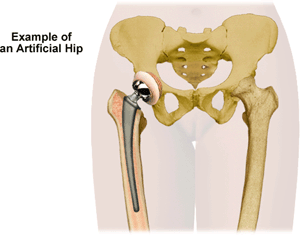"Personable care and attention to every one of my concern and questions. Most important is the fact that pain management works. I feel so much better today. Thank you Dr. Greller."
- Annie B.
"Excellent service ! Dr. Nasar knew exactly what my problem was and was extremely professional! I highly recommend this office!"
- David M.
"Thoroughly examined and given alternatives. I found Dr. Gallacher very professional and would highly recommend her, without reservations!"
- Tino C.
"Excellent! Dr Buxbaum was great. He explained to both my husband and I the facts and risks for me to have a hip replacement. He is professional and caring."
- Linda W.
"Great experience at AOSMI. Staff are wonderful and very helpful. Dr. Elkrief was very knowledgeable, polite and took his time to explain everything and answer my questions. I would definitely recommend AOSMI."
- Carrie M.
"Dr. DelGuercio is very thorough, knowledgeable, and excellent doctor. He explained everything on my MRI’s to me, answered all my questions, examined me, and then recommended all my treatments going forward."
- Marc G.
"Welcoming environment from the time i walked in - everyone on the team is definitely focused on putting the patient first! Dr Sobol - extremely caring attitude - clear communication style. Highly recommend this caring practice!"
- Cathyann F.
"Thank you all ! From the front desk to the exit desk .. Dr. Arth Patel, was on time , courteous, very informative and helpful. He will be my knee doctor from now on . Appreciated them all ."
- Elle H.
"My first visit with Dr DeWaters was one of the best experiences I have encountered. She was through, kind and explained everything to me in detail. I look forward to future visits. The staff was great and added to a great appointment. Lorraine Bogdan"
- George B.
"The entire staff at Advanced Orthopedics was very professional and thorough. Definitely a first class experience all the way through. Dr. Valimahomed was top-notch. Did not rush. Spent a lot of time with physical assessments and explaining results of various scans. Obviously, he's very knowledgeable and knows his stuff. Excellent experience from start to finish. Thank you!"
- Laura P.
"Dr Georgy is the best ... he has patience with his patients, he listens with understanding that your pain is real and not discounted! He explains things thoroughly . . . Great sense of humor and gentle in his approach!"
- Linda S.
"I would definitely recommend Dr. Nesbit. He took a lot of time to carefully look at the mechanics of my foot and diagnose the issue and he has a nice caring manner."
- Olive T.
"I visited the office of Dr. Tauro yesterday afternoon, and was pleased with the attentiveness and level of care I received. The office is welcoming and you are greeted in a warm, friendly and professional manner. Each staff member was helpful and delightful, putting you at ease immediately! Dr Tauro is so pleasant and knowledgeable. He is patient both in examining and explaining the news that follows and in outlining your options."
- Karen D.
"Dr Goldberger is an excellent physician kind professional explains procedures well.Its a pleasure to have him as my physician"
- Karen S.
"Dr. Goldberger took time to explain everything in detail. Gave me options and eased my mind about process and recovery."
- Daniel B.
 A partial or complete hip replacement is usually the last option offered to patients. A litany of less invasive treatments and solutions are offered by New Jersey orthopedic surgeons before a hip replacement is even considered. That said, there are times when the situation calls for it. Thankfully, technology has advanced considerably and these procedures are not nearly as traumatic or uncomfortable as they once were. Additionally, there are a number of things that you can do to help extend the life of your artificial hip.
A partial or complete hip replacement is usually the last option offered to patients. A litany of less invasive treatments and solutions are offered by New Jersey orthopedic surgeons before a hip replacement is even considered. That said, there are times when the situation calls for it. Thankfully, technology has advanced considerably and these procedures are not nearly as traumatic or uncomfortable as they once were. Additionally, there are a number of things that you can do to help extend the life of your artificial hip.






